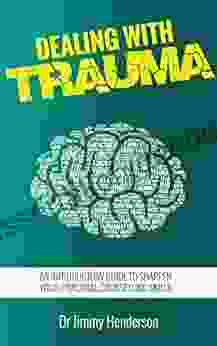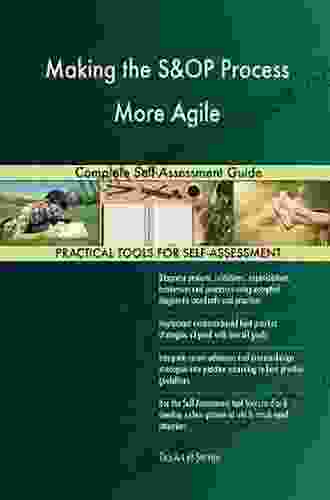An Introductory Guide to Sharpen Your Practical Counselling Skills

Counselling is a helping profession that involves providing support and guidance to individuals who are experiencing personal or emotional difficulties. It can be a rewarding career, but it also requires a high level of skill and training. This article will provide an overview of the key skills that counsellors need, and will offer some tips on how to develop them.
Active listening is one of the most important skills for counsellors. It involves paying close attention to what the client is saying, both verbally and non-verbally. Counsellors need to be able to understand the client's perspective and to reflect their feelings back to them in a way that shows empathy and understanding.
Here are some tips for developing active listening skills:
5 out of 5
| Language | : | English |
| File size | : | 2578 KB |
| Text-to-Speech | : | Enabled |
| Screen Reader | : | Supported |
| Enhanced typesetting | : | Enabled |
| Word Wise | : | Enabled |
| Print length | : | 220 pages |
| Lending | : | Enabled |
- Make eye contact with the client. This shows that you are interested in what they are saying and that you are paying attention.
- Lean forward slightly. This conveys that you are engaged in the conversation and that you are interested in what the client has to say.
- Nod your head or make other gestures to show that you are following the conversation. This helps the client to feel heard and understood.
- Avoid interrupting the client. Allow the client to finish speaking before you ask questions or offer advice.
- Reflect the client's feelings back to them. This shows that you understand their perspective and that you are empathizing with their experience.
Empathy is the ability to understand and share the feelings of another person. It is an essential skill for counsellors, as it allows them to connect with their clients on a deep level. Counsellors who are able to empathize with their clients are more likely to be able to build rapport and to provide effective support.
Here are some tips for developing empathy skills:
- Put yourself in the client's shoes. Try to imagine what it would be like to be in their situation and to experience their feelings.
- Listen to the client's story without judgment. Allow the client to express their feelings without interrupting or offering advice.
- Reflect the client's feelings back to them. This shows that you understand their perspective and that you are empathizing with their experience.
- Offer support and validation. Let the client know that you understand what they are going through and that you are there to support them.
Counsellors need to be able to communicate effectively with their clients. This involves being able to speak clearly and concisely, as well as being able to listen attentively. Counsellors also need to be able to adapt their communication style to meet the needs of their clients.
Here are some tips for developing communication skills:
- Speak clearly and concisely. Avoid using jargon or technical terms that the client may not understand.
- Listen attentively. Pay attention to what the client is saying, both verbally and non-verbally.
- Adapt your communication style to meet the needs of the client. Be aware of the client's cultural background and communication style, and adjust your own communication accordingly.
- Be patient. Allow the client to take their time to express themselves.
- Be respectful. Treat the client with respect, even if you do not agree with their views.
Counsellors are often called upon to help clients solve problems. This may involve helping the client to identify the problem, to develop a plan for solving it, and to implement the plan. Counsellors need to be able to think critically and to be creative in order to help clients find solutions to their problems.
Here are some tips for developing problem-solving skills:
- Identify the problem. Help the client to define the problem and to identify the goals they want to achieve.
- Brainstorm solutions. Encourage the client to come up with as many different solutions as possible.
- Evaluate the solutions. Help the client to weigh the pros and cons of each solution.
- Choose a solution. Help the client to choose the solution that is most likely to be effective.
- Implement the solution. Help the client to put the solution into action.
It is important for counsellors to practice self-care in order to avoid burnout. This means taking care of your physical, emotional, and mental health. Counsellors who are able to practice self-care are more likely to be able to provide effective support to their clients.
Here are some tips for practicing self-care:
- Get enough sleep. Aim for 7-8 hours of sleep each night.
- Eat healthy foods. Nourish your body with healthy foods that will give you energy and vitality.
- Exercise regularly. Exercise is a great way to reduce stress and improve your mood.
- Seek professional help when needed. If you are struggling with personal or emotional difficulties, it is important to seek professional help. A therapist can provide you with support and guidance, and can help you to develop coping mechanisms.
Counselling is a rewarding career, but it also requires a high level of skill and training. The skills discussed in this article are essential for counsellors who want to be effective in their work. By developing these skills, counsellors can help their clients to overcome challenges, achieve their goals, and live happier, more fulfilling lives.
- American Counseling Association
- National Board for Certified Counselors
- [International Association for Counselling](https://www.ia
5 out of 5
| Language | : | English |
| File size | : | 2578 KB |
| Text-to-Speech | : | Enabled |
| Screen Reader | : | Supported |
| Enhanced typesetting | : | Enabled |
| Word Wise | : | Enabled |
| Print length | : | 220 pages |
| Lending | : | Enabled |
Do you want to contribute by writing guest posts on this blog?
Please contact us and send us a resume of previous articles that you have written.
 Novel
Novel Page
Page Text
Text Reader
Reader Library
Library E-book
E-book Magazine
Magazine Newspaper
Newspaper Paragraph
Paragraph Sentence
Sentence Glossary
Glossary Bibliography
Bibliography Manuscript
Manuscript Codex
Codex Bestseller
Bestseller Library card
Library card Narrative
Narrative Biography
Biography Autobiography
Autobiography Memoir
Memoir Dictionary
Dictionary Narrator
Narrator Resolution
Resolution Librarian
Librarian Catalog
Catalog Archives
Archives Scholarly
Scholarly Lending
Lending Academic
Academic Journals
Journals Special Collections
Special Collections Interlibrary
Interlibrary Literacy
Literacy Study Group
Study Group Dissertation
Dissertation Awards
Awards Reading List
Reading List Book Club
Book Club Theory
Theory Textbooks
Textbooks Thomas Jefferson
Thomas Jefferson Maryann Jordan
Maryann Jordan Lori Demonia
Lori Demonia Dennis Alexander
Dennis Alexander Chris Tian
Chris Tian Janet Garman
Janet Garman Lani Diane Rich
Lani Diane Rich Jean Henderson
Jean Henderson Sarah Elisabeth Sawyer
Sarah Elisabeth Sawyer A R Tindall
A R Tindall Gayle Callen
Gayle Callen Cherokee Parks
Cherokee Parks James Renton
James Renton Ethan Bull
Ethan Bull Vivien Chien
Vivien Chien Hannah Khalil
Hannah Khalil Jo Ann Cavallo
Jo Ann Cavallo Doug Lemov
Doug Lemov Helen Robinson
Helen Robinson Darrys Aylward
Darrys Aylward
Light bulbAdvertise smarter! Our strategic ad space ensures maximum exposure. Reserve your spot today!
 Guy PowellFollow ·7.3k
Guy PowellFollow ·7.3k Alexander BlairFollow ·19.5k
Alexander BlairFollow ·19.5k Denzel HayesFollow ·8.1k
Denzel HayesFollow ·8.1k Heath PowellFollow ·8.4k
Heath PowellFollow ·8.4k Dwayne MitchellFollow ·19.9k
Dwayne MitchellFollow ·19.9k Roland HayesFollow ·15.3k
Roland HayesFollow ·15.3k William GoldingFollow ·16.1k
William GoldingFollow ·16.1k Virginia WoolfFollow ·12.5k
Virginia WoolfFollow ·12.5k

 Keith Cox
Keith CoxFrench Pieces for Flute and Piano: A Journey into...
The world of...

 Justin Bell
Justin BellThe Big Clarinet Songbook: A Musical Treasure for...
The clarinet, with its rich...

 Jamie Blair
Jamie BlairThe Metamorphoses of Ovid: A Masterpiece of...
An Epic Tapestry of Mythology and...

 Alan Turner
Alan TurnerBaa Baa Black Sheep: A Classic Sing-Along Song for Kids
Baa Baa Black Sheep...

 Bradley Dixon
Bradley DixonUnveiling the Enigmatic Shakespeare Spy: The...
Prologue: The Shadowy World...

 Gilbert Cox
Gilbert CoxUnleash Your Creativity with Plastic Craft Lace Projects:...
Plastic craft lace is a...
5 out of 5
| Language | : | English |
| File size | : | 2578 KB |
| Text-to-Speech | : | Enabled |
| Screen Reader | : | Supported |
| Enhanced typesetting | : | Enabled |
| Word Wise | : | Enabled |
| Print length | : | 220 pages |
| Lending | : | Enabled |












